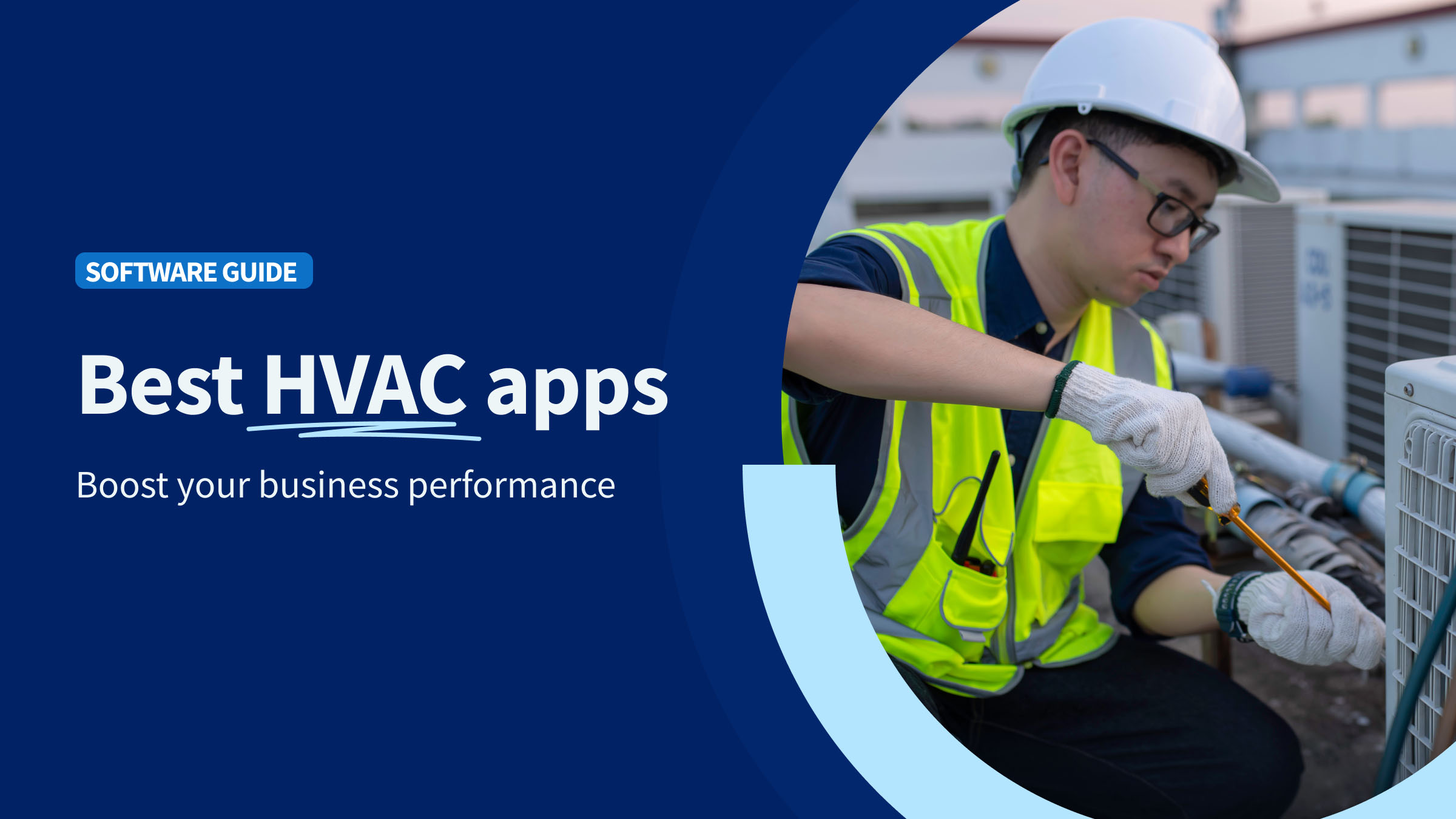Running an HVAC business means handling a lot at once. From dispatching and diagnostics to invoicing and customer follow-ups, your days likely fill up fast. Having the right HVAC software can take a lot of that pressure off and help you stay focused on the work that matters most.
There is no shortage of mobile apps out there for service businesses. However, not all of them are built with HVAC pros in mind. In this guide, we’ve hand-picked the ones that deliver useful functionality, based on what you need in the field.
These HVAC apps offer:
- Real functionality that solves a specific need
- Strong user reviews in the App Store and on Google Play
- A price that makes sense for your growing HVAC business
- Features that HVAC pros use in the field
If you’re already using QuickBooks, Method:Field Services could be the perfect fit. It connects your office and field teams, so you can manage scheduling, quoting, and payments all under one roof.
What are HVAC apps?
HVAC apps are tools built specifically to help HVAC contractors manage their day-to-day jobs without having to rely on clipboards and spreadsheets. Regardless of whether you’re running a one-person shop or growing into a larger operation, the right mobile app can turn the usual chaotic schedules into more streamlined workflows.
For many small businesses doing field service work, these apps make it easier to manage all the aspects of HVAC work that slow you down: scheduling, diagnostics, invoicing, quoting, and customer management.
Types of HVAC business apps for your needs
Every HVAC business runs a little differently, which is why most of the one-size-fits-all software solutions out there tend to miss the mark. Some teams just need better scheduling. Others may want a better follow-up process or more efficient invoicing.
Below are four app categories that cover the most common needs in HVAC.
HVAC invoice apps
Keeping track of who owes what shouldn’t take up your entire afternoon. Good invoicing apps speed up HVAC service billing, reduce any missed payments, and keep your service calls from falling through the cracks. The best invoicing apps can even handle follow up for you. Invoicing apps generally include:
- Automated invoicing
- Payment tracking without manual entry
- QuickBooks or CRM sync that avoids duplicate entries
- Full customer data and service history for faster quoting the next time around
Marketing and sales apps
The right marketing and sales tools help HVAC professionals get new leads, stay connected with customers, and make sure every good job turns into another one. These are especially useful for small business teams that don’t have the time for extensive marketing strategies or a full-time sales team. These apps usually have:
- Email and SMS campaign tools
- Sales and pipeline tracking
- Contact segmentation to target repeat customers
- Available CRM integration
Calculation apps
In the HVAC industry, precision matters. Opting for a calculation app can help keep your metrics accurate for every HVAC system installed.
These apps are a staple for any HVAC crew that deals with refrigerant charges, superheat measurements, and subcooling calibration.
Common examples of HVAC-specific calculators are: refrigerant charge, duct sizing, airflow, load calculation, and BTUs.
HVAC education apps
Even the most seasoned HVAC pros can learn something new, especially with codes, equipment, and compliance changing all the time. These apps help you prepare for certifications and stay sharp on the job site. Below are examples of popular HVAC education apps:
- Bluon HVAC: A huge knowledge base and community forum. Available on iOS and Android.
- EPA 608 practice app: Test preparation for the EPA section 608 certification.
- NATE test prep: App that helps techs prepare for the NATE certification, updated for 2025 on Android and iPhone smartphones.
Although not an app, it’s also worth checking out the HVAC School for free HVACR training videos and podcast episodes—especially if you’re an apprentice or in training.
Best HVAC apps for business
While there’s no shortage of HVAC apps out there, these five stand out. Whether you need better diagnostics, faster dispatching, or real-time on-site updates, these picks actually help you get things done.
Method: Best HVAC app for integrated CRM
If you’re tired of digging through old paperwork or switching between multiple apps just to track a job, the Method field service management app is what you need. Built for field service teams, it connects your service calls, customer info, and billing and syncs it all with QuickBooks.
Features:
- Real-time service call tracking from the office or the field
- Quote and invoice sync with QuickBooks, no manual entries
- Customer workflows that are made especially for HVAC professionals
QuickBooks: Best HVAC app for accounting and invoicing
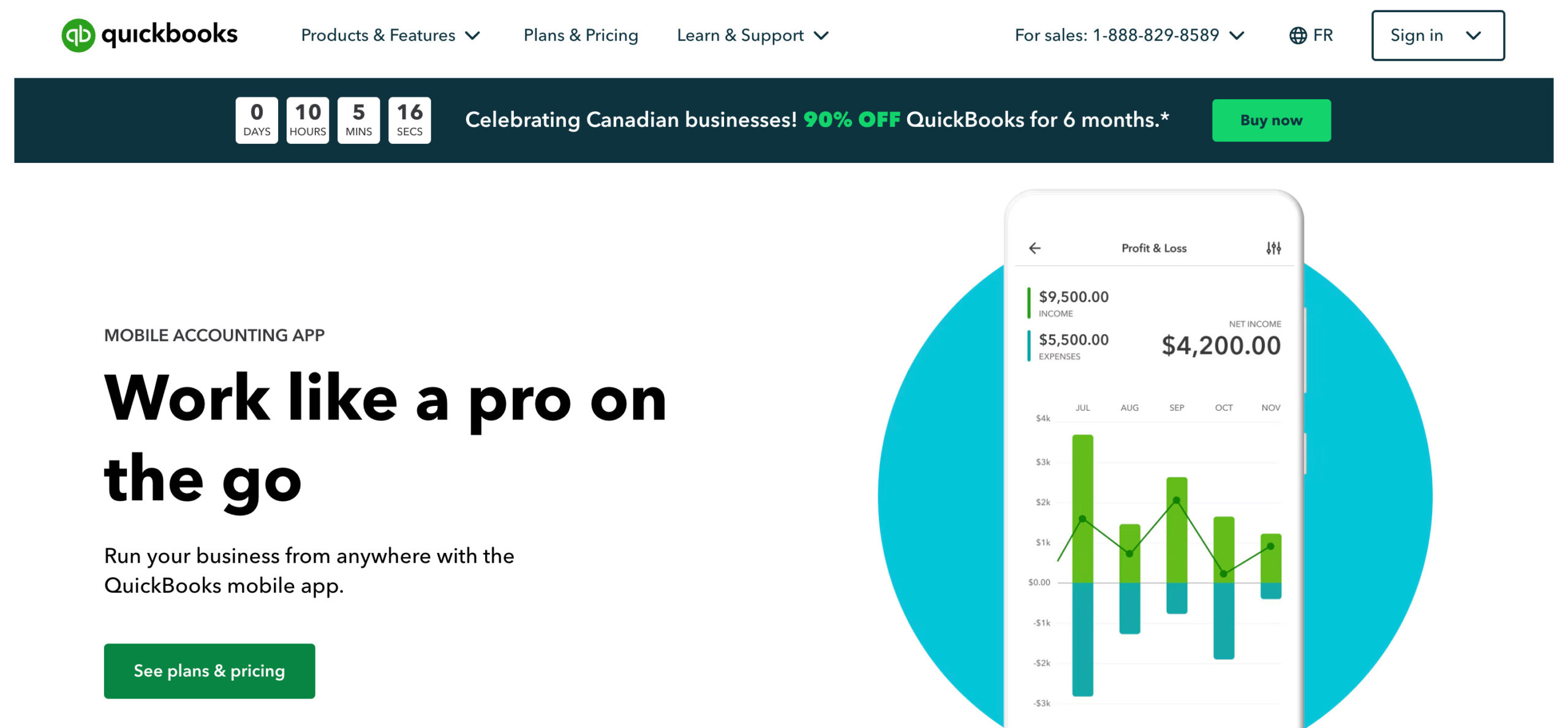
Cash flow is the lifeblood of small businesses, and QuickBooks can streamline payroll and payments for them. It handles invoicing, tracks expenses, and keeps your numbers accurate for tax time. You can also connect it to tools like Method CRM for even better tracking and visibility.
Features:
- Automated tax tracking and financial reporting
- Customizable templates for HVAC invoicing
- User-friendly time tracking available through QuickBooks Time add-on
Jobber: Best HVAC app for real-time tracking
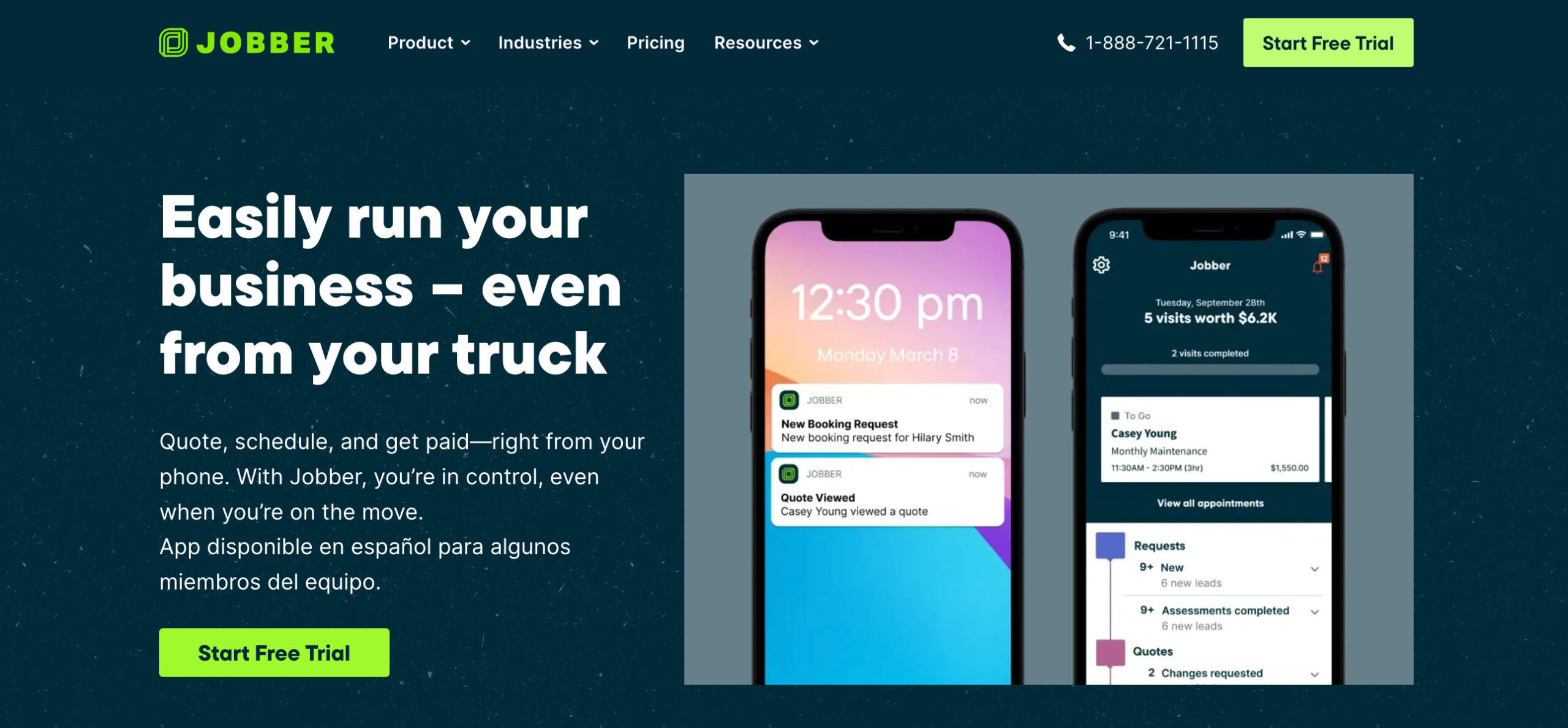
Jobber is a field service app that gives office staff and techs a shared view of active jobs, routes, and updates through notifications and an in-app dashboard. It’s useful for dispatching, managing daily scheduling, and viewing job progress in real-time. HVAC techs can check in from the field, log updates, and access job details as needed.
Features:
- GPS technician tracking with live map view
- Status updates for each service call
- Quick job assignment using drag-and-drop scheduling
Connecteam: Best HVAC app for communication tools
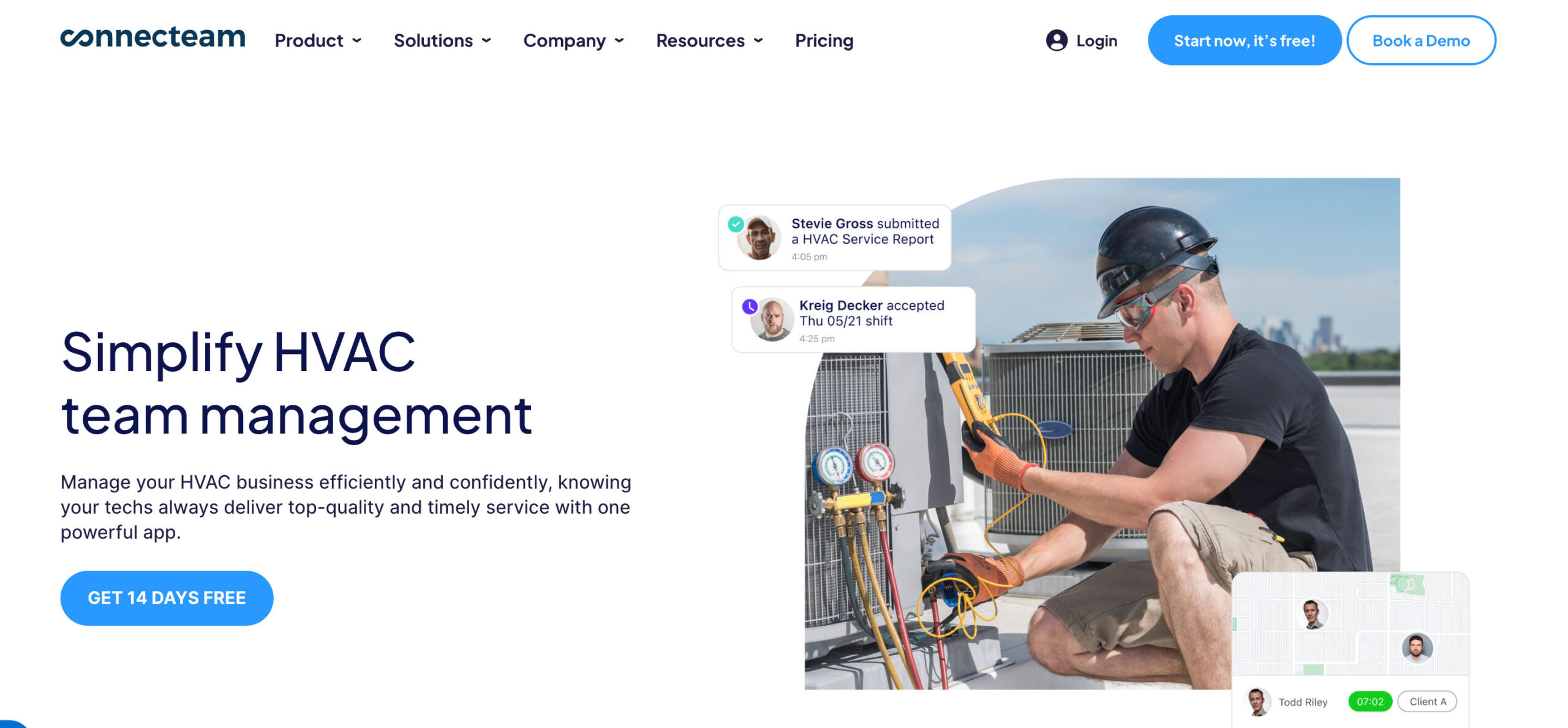
Connecteam for HVAC helps your field team stay organized without having to rely on calls or endless text chains. This app handles job information, updates, and direct messages all within one HVAC industry app. HVAC technicians can access schedules, report issues, and stay in contact with the head office across multiple job sites.
Features:
- Built-in team chat with file and image sharing for troubleshooting
- Real-time job updates and read receipts
- Task-specific notifications are tied to assigned work
mHelpDesk: Best HVAC app for workflow management
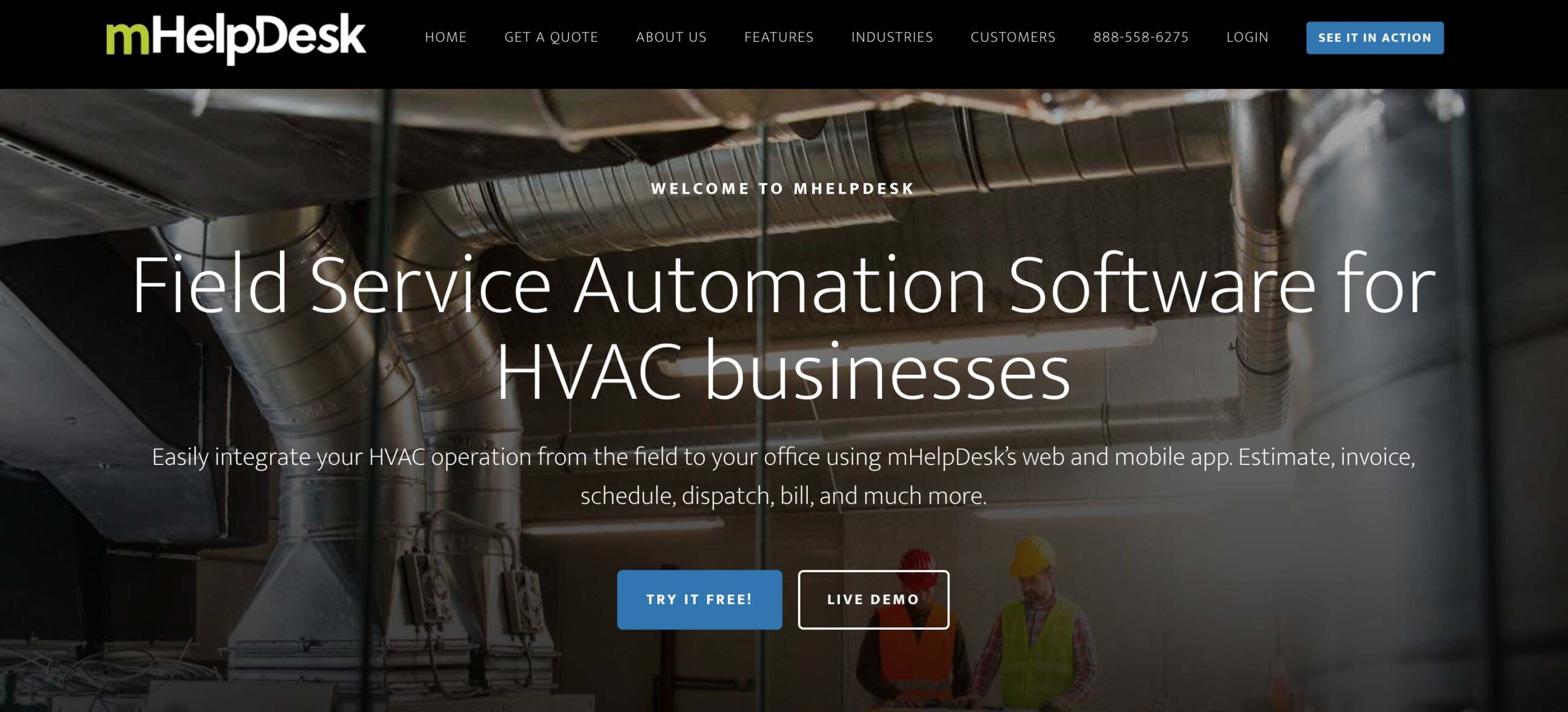
mHelpDesk helps connect the office and the field crew through one app that covers the workflow from contact to wrap-up. You can manage schedules, view past work, and handle billing without requiring multiple tools.
Features:
- Custom templates for quotes and work orders
- Drag-and-drop dispatching
- Live job status tracking and progress updates
Why is field service management software important for HVAC businesses?
Field service software helps cut down on admin tasks while giving you a clearer view of what’s happening outside of HQ. These apps keep things moving by:
- Scheduling and dispatching in one place
- Providing easy-to-use portals for customers
- Letting techs give job updates in real time
How much do HVAC apps cost?
As with most digital tools, the cost depends mostly on the level of functionality you require. A solo technician won’t pay the same as a full office team running a CRM setup:
- Free to $25/month – Basic tools like the HVAC buddy web app
- $25 to $75/month – Mid-tier CRM, scheduling, and invoicing
- $75+/month – Advanced or multi-user field service platforms with integrations and automation
How to find the right HVAC app for your business
Not sure where to start? Here’s a simple way to break it down:
- List out the processes that are taking up the most time.
- Decide if you want an all-in-one tool or a niche tool that includes mobile access and real-time updates.
- Check if it integrates with QuickBooks, your CRM, and existing tools.
- Review the support and training options.
Key takeaways
Ultimately, the best HVAC apps are those that address the challenges you face daily. Whether it’s tracking jobs, sending invoices, or keeping your team aligned, having the right tools makes all the difference.
HVAC apps can help you:
- Cut down on admin work and paperwork
- Improve scheduling and visibility in the field
- Speed up invoicing and cash flow
- Deliver a better experience for your customers
If you’re looking to connect your team, customers, and books, try Method:Field Services. It’s a top-rated QuickBooks-compatible CRM for HVAC businesses.
Frequently asked questions
What’s the best way to learn HVAC?
Practicing theory will only take you so far, making hands-on training essential. Most HVAC pros in the U.S. start through trade school programs or union apprenticeships. Pair that with on-the-job experience under a licensed tech, and you’ll be building skills in no time
What is the highest paid HVAC job?
Commercial HVAC technicians, system designers, and HVAC project managers are among the high earners. Those with certifications in areas like refrigeration, controls, or green building systems can also earn more.
Is HVAC in demand in Canada?
Yes, the HVAC industry is seeing steady demand. The Canadian Job Bank shows good demand in Nova Scotia, Saskatchewan, Ontario, and Alberta. HVAC remains a solid path for small business growth in Canada.
Which software is best for HVAC?
-
- MethodCRM: For CRM and QuickBooks integration
-
- QuickBooks: For invoicing, expenses, and financial reporting
-
- Jobber: For real-time tracking and field service management
-
- Connecteam: For communication, team updates, and mobile chat
-
- mHelpDesk: For workflow tools, from dispatching to job completion




